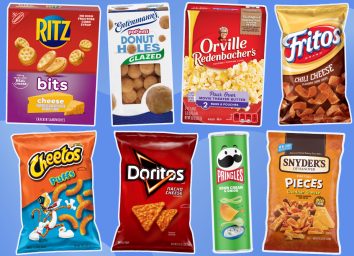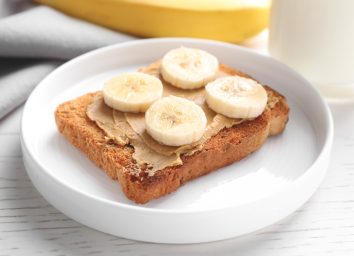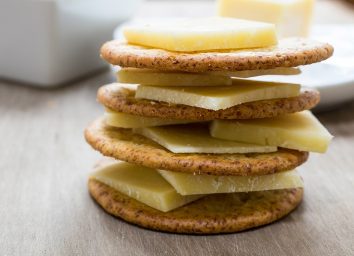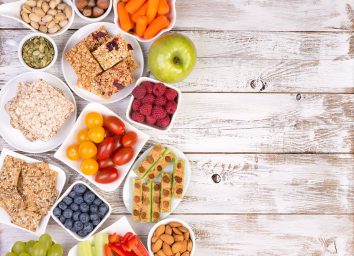What Happens to Your Body When You Late-Night Snack
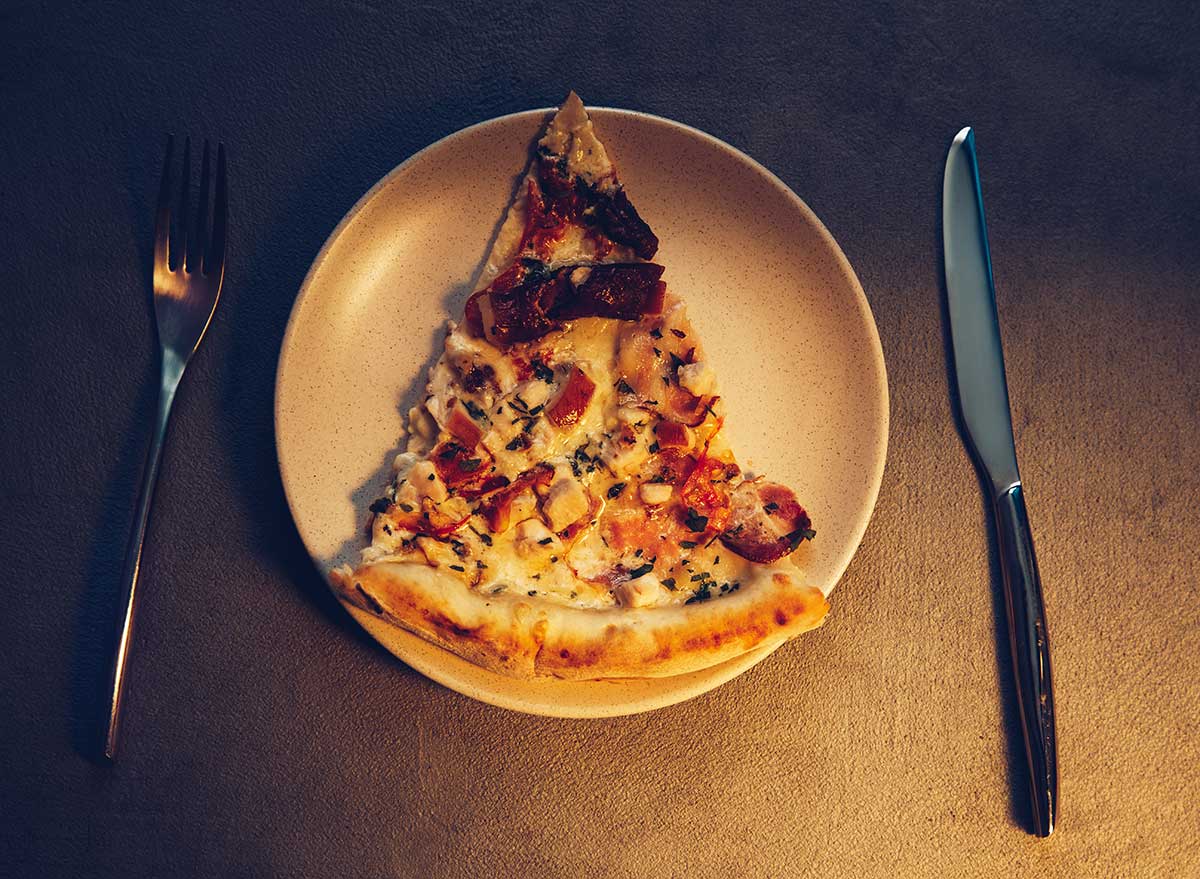
Now that so many of us are spending most of our time at home, a lot of us are also staying up later and (most likely) eating more as a result of the COVID-19 pandemic. And hey, the late-night snack just comes calling sometimes. In fact, 42 percent of people say they are eating more snack foods since the virus started to spread in the United States and 23 percent admit to drinking more alcohol, according to a Harris Poll.
That doesn't come as much of a surprise to experts in stress and emotional eating. According to clinical psychologist Vaile Wright, Ph.D., senior director of health care innovation for the American Psychological Association, it's common to reach for food in times of stress because it gives us a sense of control.
"The primary driver [of stress right now] is the uncertainty with this virus: It's invisible; it happened very rapidly; we still have questions about its transmissibility, and we have no cure," Wright says.
Stress and boredom can be huge overeating triggers, says Dwain Fehon, PsyD, associate professor of psychiatry at Yale University and director of behavioral medicine at Yale New Haven Hospital. "It's when we're not doing much, when we're idle or feeling overwhelmed, that we may eat as a way of managing stress. The boredom and restless energy that can come from being quarantined may cause some people to want to reach for snacks as a way to self-soothe," he told Yale School of Medicine News.
And when we stress eat, we often choose nighttime snacks that are high in sugar and fat for a strategic biological reason: "They both create endorphins; they literally make us feel better," Wright says.
One downside of those feel-good brain chemicals from midnight snacking on pints of Ben & Jerry's is they can be addictive, causing us to overconsume. Here's how late-night quarantine eating may affect your body.
You may gain weight.
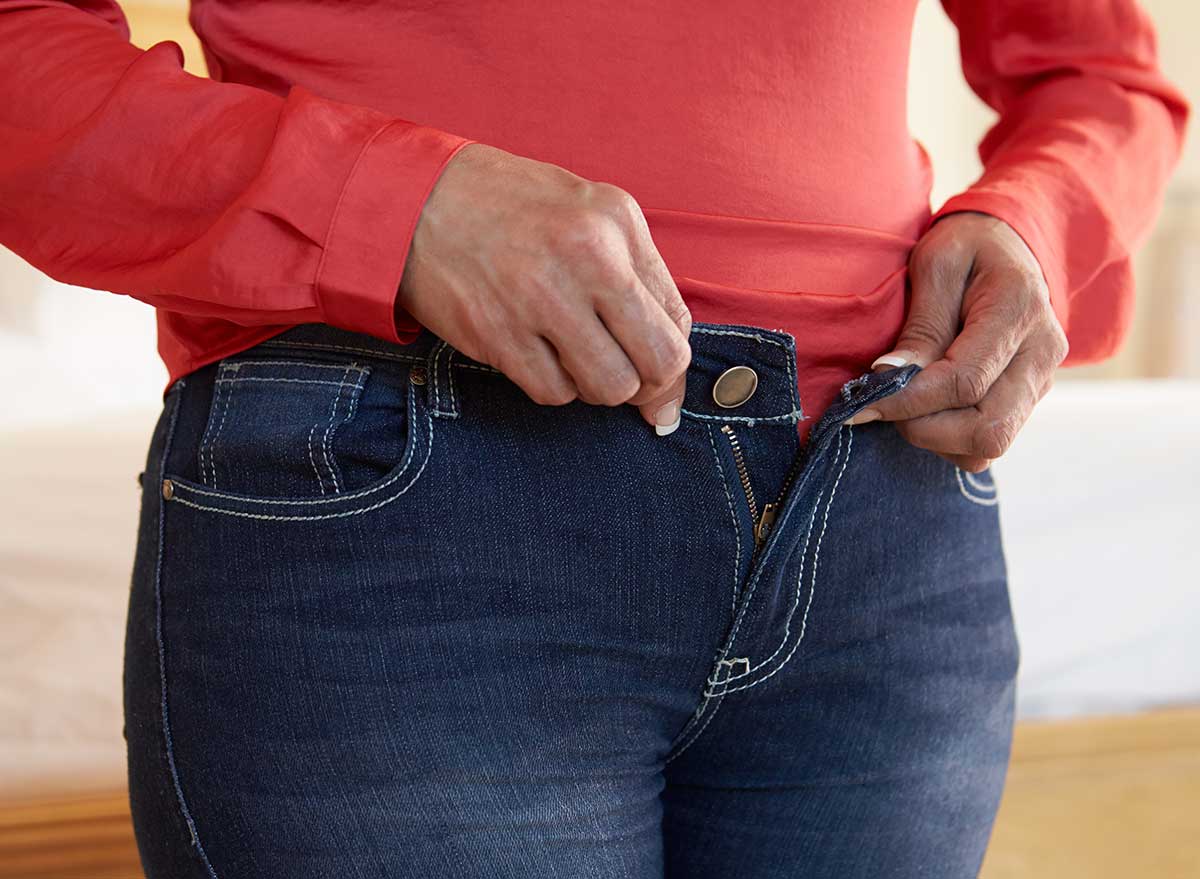
It's generally accepted that the content and quantity of food you eat in a day has a much greater impact on weight gain that what time you consume it, but studies do show an association between late-night eating and putting on the pounds. One large study of 19,687 Japanese women in the Journal of Obesity found that the 11 percent who ate late dinners and 22 percent who snacked late at night were more likely to have a high body mass index and be considered either overweight or obese than women who ate during the day.
You may feel guilty.
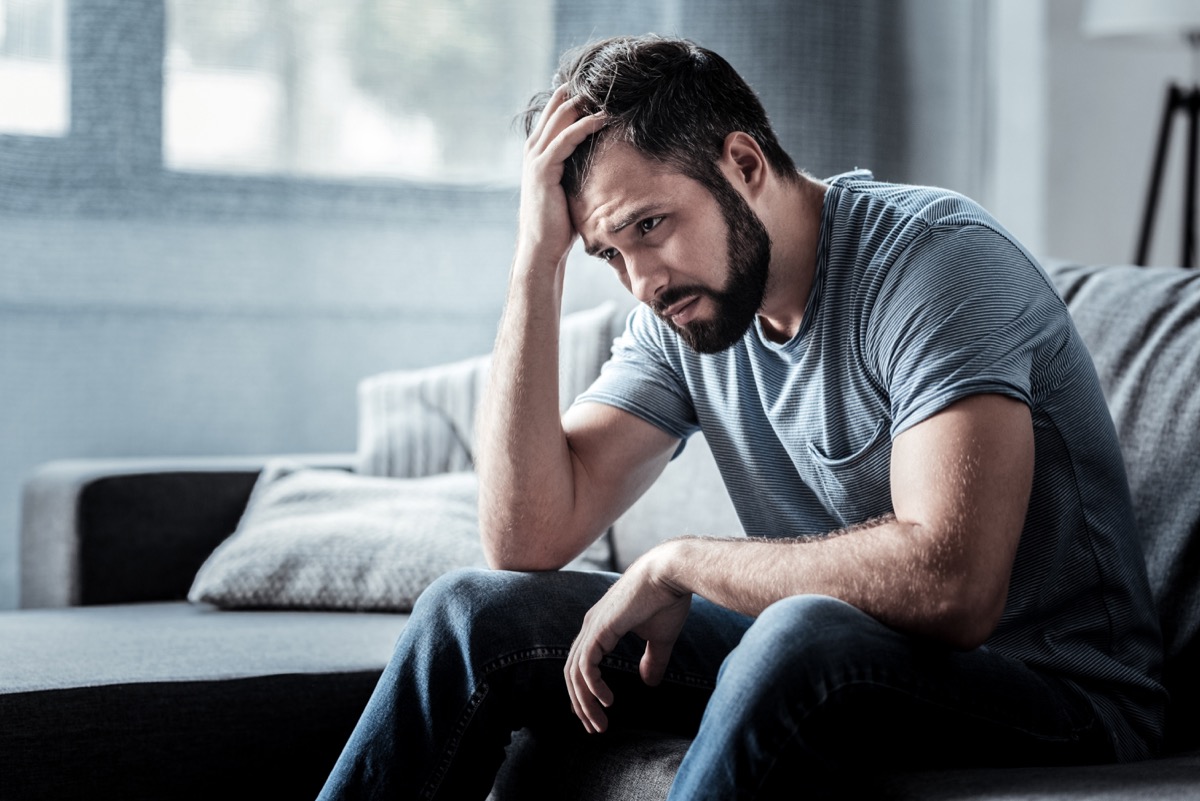
There's nothing fundamentally wrong with having a snack late at night until it starts to make you feel bad after eating it.
"Guilt is probably not a very useful emotion right now," Wright says. Be mindful of how you feel about eating that ice cream, she suggests. "It sounds really simple, but if your late-night snacking really bothers you, set up barriers that make it harder for you to engage in whatever behavior you don't like doing. That's a way to regain some control in a time of such uncertainty."
You may slow your fat burning.
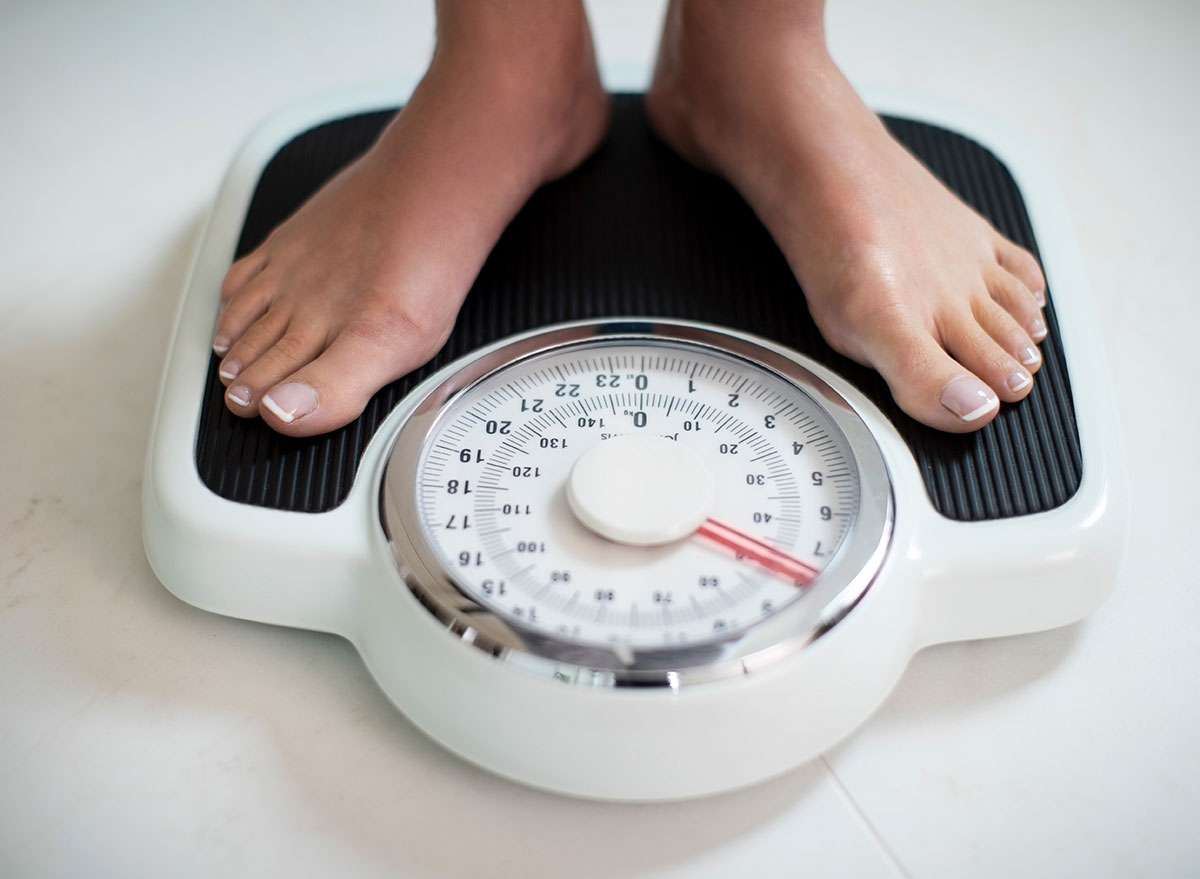
Prolonged eating into the nighttime may negatively affect fat metabolism and hormonal markers implicated in heart disease, according to the results of a study at the Perelman School of Medicine at the University of Pennsylvania. In the study, nine healthy people were accessed during two separate eating conditions: daytime eating (three meals and two snacks between 8 a.m. and 7 p.m. for eight weeks) and delayed eating (eating three meals and two snacks between noon and 11 p.m. for eight weeks). Each time, the participants were asked to go to bed by 11 p.m. When the participants consumed their calories late in the day, the researchers found that they metabolized fewer fats and more carbohydrates. "Eating later can promote a negative profile of weight, energy, and hormone markers—such as higher glucose and insulin, which are implicated in diabetes, high cholesterol and triglycerides, which are linked with cardiovascular problems and other health conditions," says Namni Goel, Ph.D., a research associate professor of psychology in the division of Sleep and Chronobiology in a news release from Penn Medicine.
You may eat fattier, junk foods.
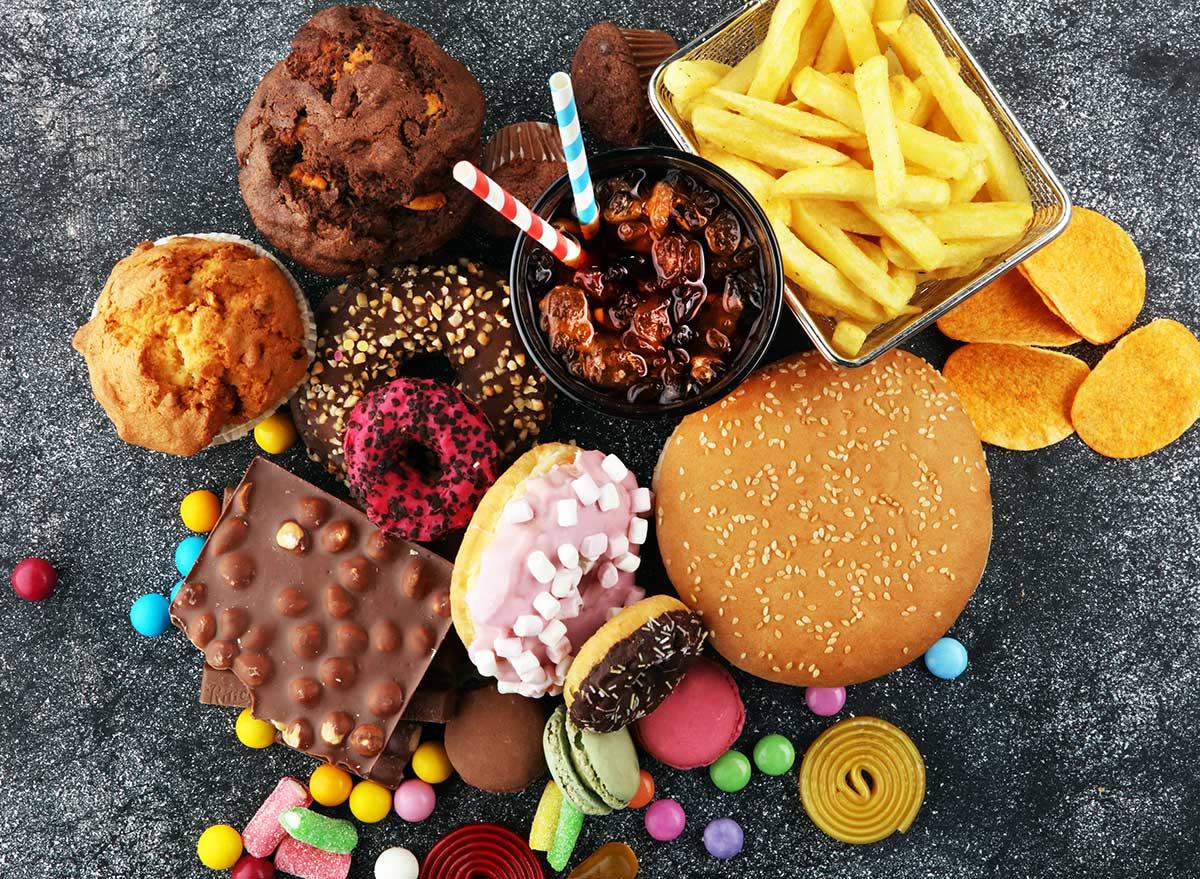
If you eat at the end of a busy day, you're not likely to put a lot of effort into cooking a healthy meal. Most people tend to veg out in front of the TV and scarf on high-calorie foods. "Typically, people who are eating at night have probably consumed an evening meal, so then their night eating would entail snack items like ice cream, cookies, popcorn or chips," says Betsy Day, manager of the University of Arkansas for Medical Sciences Weight Loss Clinic. "And most of the time this eating is associated with other activities like watching TV and playing on the computer, which leads to mindless eating and, typically, overconsumption."
You may have trouble falling asleep.
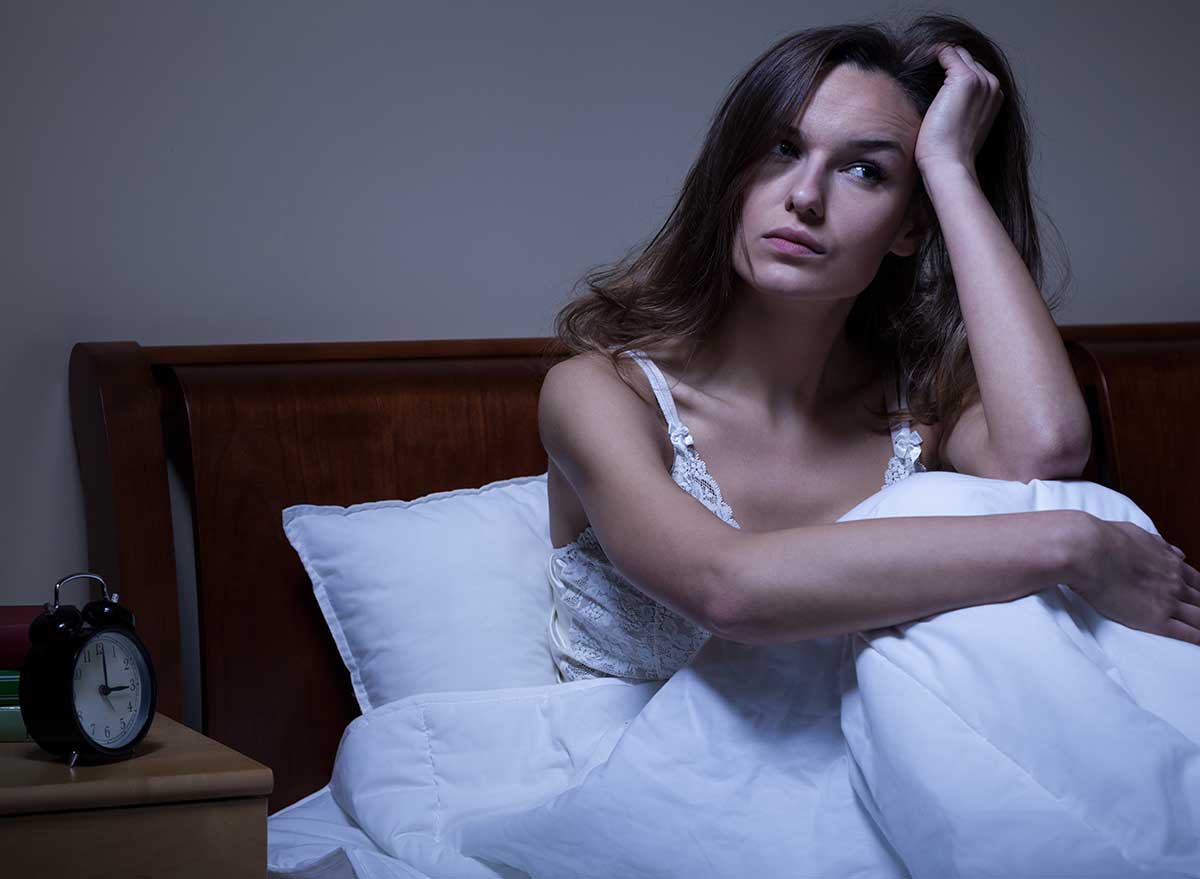
Depending on what you have for a midnight snack, you might fall asleep fast, or end up tossing and turning all night. A glass of warm milk may help you relax and drift into slumber, and foods containing high amounts of tryptophan, like turkey, are metabolized into the sleep-inducing hormones serotonin and melatonin. But coffee, tea, soda, or chocolate (hello caffeine!) can contribute to insomnia. And while a nightcap may put you to sleep, the body-numbing effect of alcohol wears off soon and can actually disrupt your sleep, doctors say. If you're looking to improve your nighttime routine, there are a few ways to get the best sleep during quarantine.
You may get GERD.
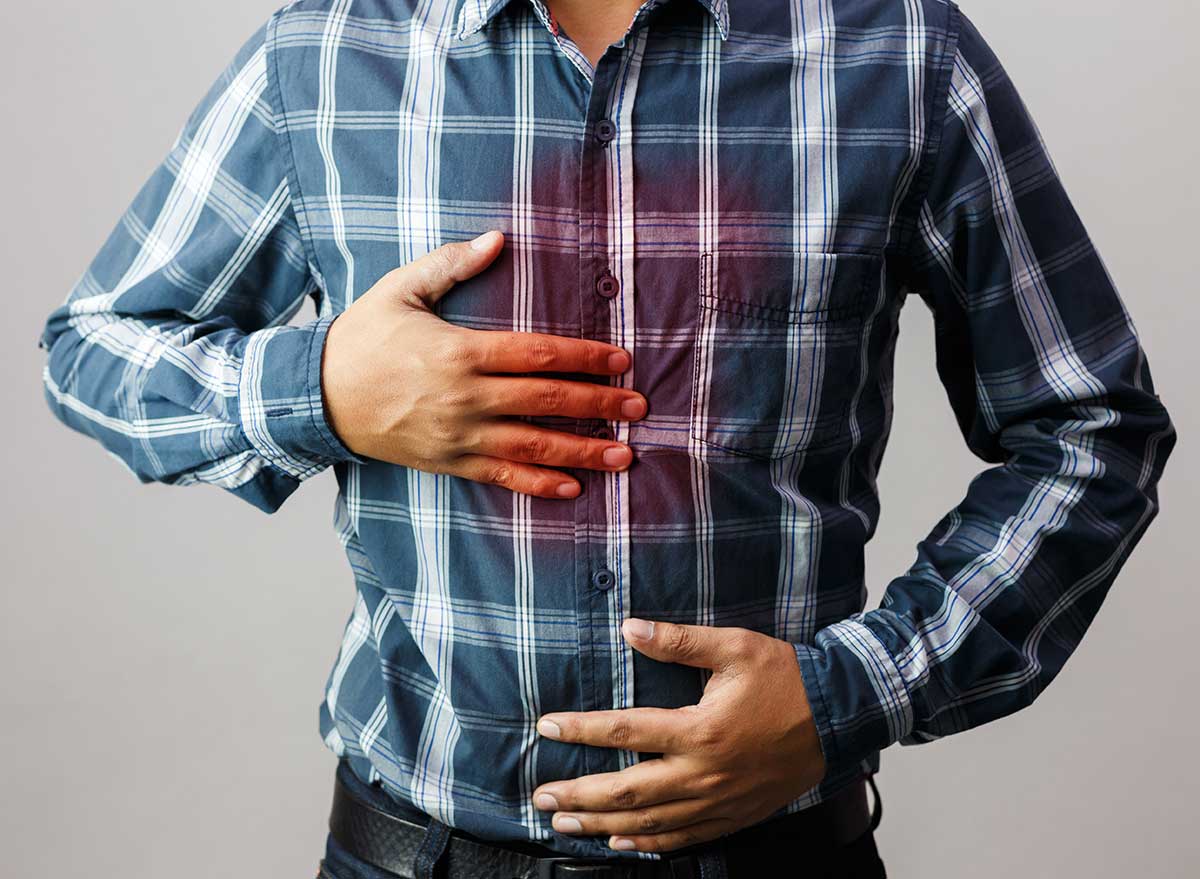
Eating heavy too close to bedtime can leave you with a case of heartburn and if that becomes chronic, you may just be dealing with gastroesophageal reflux disease, or GERD.
"You can imagine if you go to a fast food place, and you get a burger and fries, and a big drink, and then lay down, you're going to get a significant amount of reflux because it's going to take your stomach a few hours to empty", says Scott Gabbard, MD, a gastroenterologist in the center for esophageal and swallowing disorders at the Cleveland Clinic. It typically takes the stomach four to five hours to empty fully after a meal. Gabbard recommends waiting at least three hours after eating to go to bed. Since eating large, fatty meals tends to exacerbate heartburn, keep your late-day meals to 500 calories or less and 20 grams of fat, he suggests.
You may spend more money.

If you're eating dinner after 8 p.m. every night, chances are you're not cooking it yourself. Instead, you're probably ordering in takeout. That's bad news for your wallet if this is something you're doing every night instead of just once in a while. The average American household spends about $3,000 a year dining out, according to the Bureau of Labor Statistics and the average restaurant meal is about 300 percent more expensive than a similar meal made at home.
You may develop metabolic syndrome.
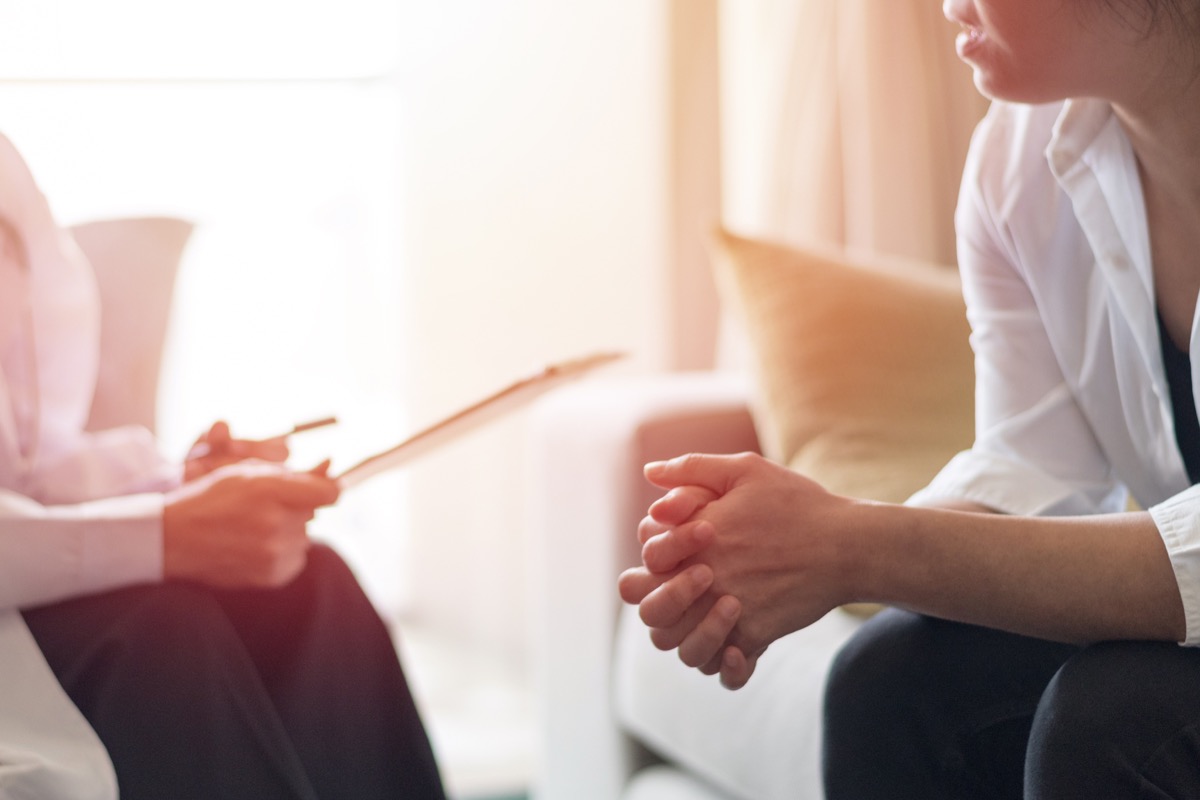
Metabolic syndrome is a catchall name for a cluster of conditions that typically occur together and increase your risk of strokes, type 2 diabetes, and heart disease. A large-scale Japanese study that looked at more than 60,000 adults between the ages of 20 and 75 pointed to an interesting potential link between late-night eating and this dangerous cluster of symptoms. Of those studied, 14,068 regularly skipped breakfast while half of that number skipped breakfast and habitually ate late-night dinners. While skipping breakfast alone showed no association with metabolic syndrome, the researchers found that those people who typically skipped breakfast and ate late at night had a greater prevalence of metabolic syndrome.
You may hurt your kidneys

The same large Japanese study mentioned above also found an association between eating dinner late at night and unusually high amounts of protein in the subjects' urine. Technically called proteinuria, the condition is often a sign of kidney disease.
You can become even more anxious and depressed.

Stress is a known trigger of binge eating and can lead you to crave high-fat, high-sugar foods. But eating fatty foods at night may, in turn, trigger anxiety and depression, causing an ongoing mood-disorder cycle. Researchers at Yale University fed rats six times their normal diet of fat and found that it had actually changed the plasticity of the synapses in their brains. After four months on the diet, the rats exhibited signs of anxiety and depression as well as metabolic disorders such as type 2 diabetes.
